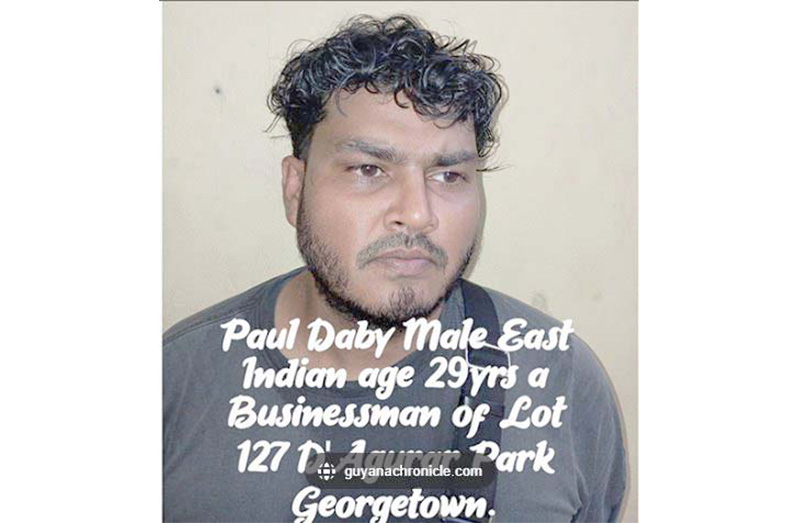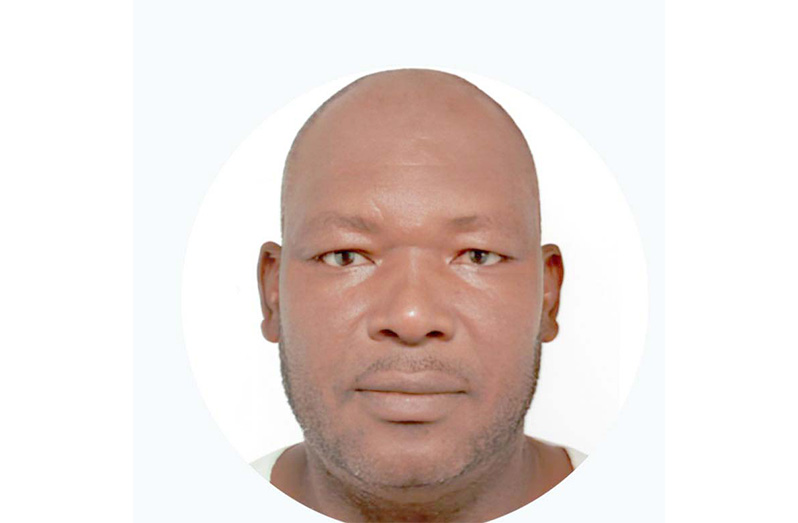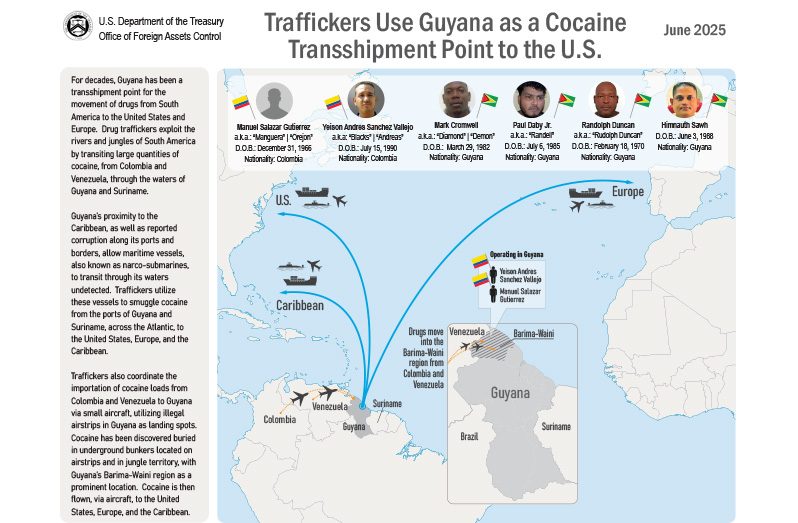—Treasury will continue to expose criminal networks, Deputy Secretary of Treasury Faulkender says
IN a firm stance against international narcotics trafficking, State Department spokesperson Tammy Bruce, on Friday announced that United States (US) President Donald Trump is taking direct action to disrupt global cocaine networks.
Highlighting new sanctions imposed by the US Department of Treasury, Bruce noted that key figures operating major drug-trafficking rings in Guyana have been targeted.

“We’re cutting off their profits and securing our borders,” she stated, underscoring a coordinated effort involving various stakeholders to confront the cocaine trade at its source.
“Under President Trump, this administration has achieved the most secure border in modern history. The Treasury Department continues to bring our unique tools and authorities to the fight against cartels and their affiliates,” said Deputy Secretary of Treasury Michael Faulkender.
He said: “Today’s action is a strong signal that this administration will continue to take the fight to the cartels, regardless of where they are located. Treasury will continue to expose the criminal networks that enable the flow of drugs into the United States, and will work closely with our law enforcement partners and the Government of Guyana to disrupt these cartels wherever they operate.”
Randolph Duncan and Paul Daby Jr., are at the helm of the country’s largest drug-trafficking networks, the US Treasury Department revealed on Thursday in a sweeping crackdown that also ensnared a senior police officer and four other associates.

Duncan, 55, of Georgetown and Daby Jr., 39, of 127 D’Aguiar Park, Georgetown, have been designated by the US Department of the Treasury’s Office of Foreign Assets Control (OFAC) for their roles in trafficking cocaine across South America, Africa, the Caribbean and into Europe and the United States.
The pair, according to US authorities, use a combination of maritime vessels, aircraft, and bribed officials to operate an elaborate and far-reaching cocaine smuggling empire.
Daby Jr is said to coordinate massive drug shipments from Colombia and Venezuela, using illegal airstrips in Guyana. He also allegedly traffics cocaine in shipping containers through ports in Guyana and Suriname and is involved in illegal gold smuggling via sea routes.
Duncan’s network, meanwhile, focuses on moving cocaine from Guyana through Africa and the Caribbean, with the US and Europe as final markets.
Joining them on the US Specially Designated Nationals and Blocked Persons (SDN) list is Mark “Demon” Cromwell, 43, a former Guyana Police Force (GPF) officer turned alleged violent trafficker and a key ally of Daby Jr.
Cromwell is wanted by local police in connection with the 2024 abduction of a former GPF officer.
Senior Superintendent of Police Himnauth Sawh, 37, of Cane Grove, Region Four, who was last assigned to the force’s Projects Office, was also sanctioned.
Sawh, who is currently on administrative leave, previously served as Commander of Region One (Barima-Waini), a region now identified as a hub for drug-trafficking activity.

He was removed from that post following the August 2024 discovery of 4.4 tonnes of cocaine—valued at over US$195 million—hidden in hand-dug pits. OFAC said he provided safe passage for Colombian and Venezuelan traffickers through the region.
Two Colombian nationals—Yeison Andres Sanchez Vallejo, 34, and Manuel Salazar Gutierrez, 58—were also sanctioned.
The pair are believed to manage the secret airstrips used to fly cocaine into Guyana from Colombia. Both of them have ties to Region One.
The sanctions, issued under Executive Order 14059, freeze all US-linked assets of the individuals and bar them from the US financial system.
US persons are also prohibited from conducting any transactions with the six designated persons and they are barred from entering the US.
According to the US Treasury Department, Guyana’s proximity to the Caribbean, as well as alleged corruption along its ports and borders, allows aircraft and maritime vessels, also known as narco-submarines, to transit its waters undetected.
Drug traffickers exploit the rivers and jungles of South America by transporting large quantities of cocaine from Colombia and Venezuela through Guyana and Suriname.



.jpg)








